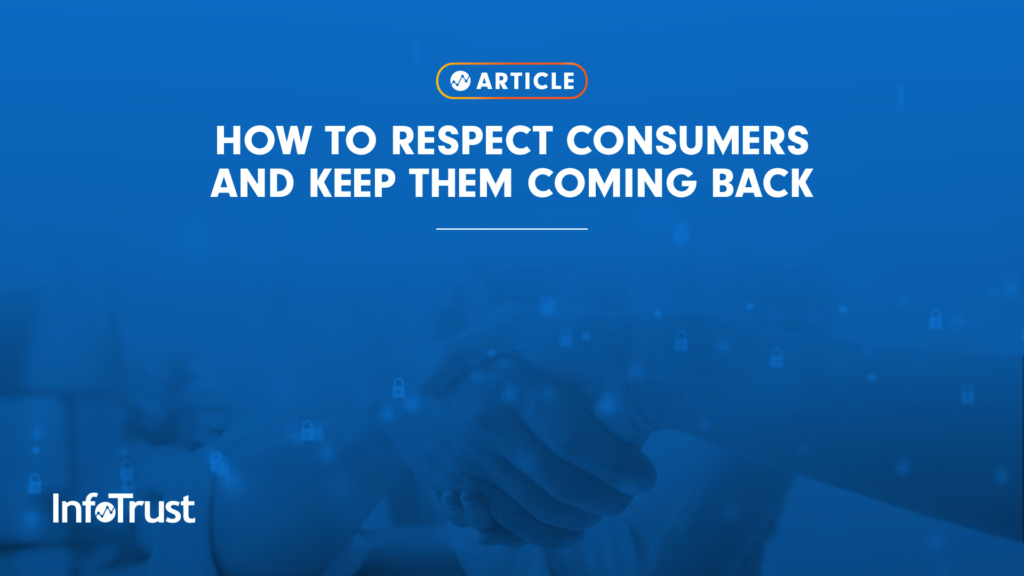You’ve seen the statistics. It’s no secret that in today’s marketing environment users expect a higher level of personalized communication while at the same time are more skeptical than ever about the usage of their information and as unlikely as ever to provide information which enables the personalization they so desire. At the core of this paradox is the concept of respect—consumer data has been disrespected for too long and they are waking up to that realization. To succeed in the privacy-centric future of marketing and advertising, businesses must install basic principles of respect in all of their data practices to attract new customers and keep them coming back for more. Let’s discuss the four principles to focus on.
1. Be Transparent
The first, and in many ways most important, piece of respecting users is being transparent with them about what data is being collected and what it is used for. Without transparency, the user is unable to make a value judgment about the uses of their data nor exercise meaningful choice about what activities they are comfortable with.
Specific transparency requirements are outlined in relevant privacy legislation such as GDPR (for EU organizations) or U.S. state legislation like CCPA. I would argue though that while it is important to meet transparency requirements in relevant regulations, it is not enough. Successful privacy-centric organizations need to communicate with their consumers in very clear and direct language. Outline the following in a way that your parents can understand:
- What data is being collected
- Why the data is being collected (for what purpose – to personalize ads, to provide custom content, etc.)
- What platforms and partners data is being shared with
- How long the data is being retained and what protections are in place while you hold onto the data
The general opacity of data collection and usage practices are a huge reason for the distrust consumers currently have for marketing activities—only by bringing everything above board can we begin to repair those critical relationships.
2. Give Meaningful Choice
Once you are transparent with users about what data is being collected and for what purpose, users should then be able to choose which activities they are comfortable with. Further, you should respect their wishes regardless of the impact on your business. Upset that many users are opting out of the usage of their data for targeted advertising? Don’t try to come up with work-arounds—address the problem and build better relationships!
Choice requirements from the legal perspective vary from location to location. In Europe, users must give their explicit consent before identifiers can be set and accessed from their devices and for their personal data to be processed for most marketing activities. In the United States, consumers in some states (California, Virginia, Colorado, Utah, and Connecticut as of writing) have the right to opt-out of the usage of their personal information for targeted advertising. Again though, don’t just check the box on local regulations—give your consumers meaningful choice regardless of what the requirement is.
Meaningful choice means the ability to give a blanket opt-out (easily), as well as the ability to set more granular privacy preference options. Just as importantly as providing this choice, do so in a user-friendly way and respect their choices. Providing this meaningful choice builds trust and in the end will result in more valuable relationships with consumers.
3. Make it Worthwhile
At the foundation of personalization—be that in advertising, recommendations, or content—is an exchange between the business and the consumer. The consumer provides their information and consent to use it, while the business provides an experience in return. A huge reason for the backlash against traditional advertising practices has been that the value exchange has gotten off-kilter and skewed heavily towards the business. Businesses have gotten higher conversion rates, lower cost of acquisition, and more robust profiles for users while consumers have gotten … remarketing ads that follow them around the internet?
Make sure the value that your consumers are receiving is in line with the value your business is receiving from the usage of their data. According to the Adobe and Advanis Global Survey: Use Data Effectively to Build Greater Trust and Loyalty with Consumers, 48 percent of consumers like it when they’re recognized when they login, 45 percent like getting content geared towards their interests, and 40 percent like offers, promos, and info that match their needs. When consumers provide their information and consent to your observing their behaviors, these are the minimum benefits they expect in return. Actually deliver! Only once the exchange is worthwhile for users to provide their information will they actually do so.
4. Protect User Data
Once you have transparently communicated the data processing and the consumer has entrusted you with their data, it’s critical to have the protections in place to keep it safe. This means doing things like ensuring data is deleted after its purpose has been accomplished, making sure only relevant and authorized users have access to the data, and protections are in place to guard against unauthorized use of the data.
In the end, consumer information is becoming more scarce and technical changes in the industry are making access to identifiers much more limited. As a result, consumer data has never been more valuable. Embed these four principles of respect into your data strategy and execution to lay the foundation for privacy-centric data enablement at your organization.



